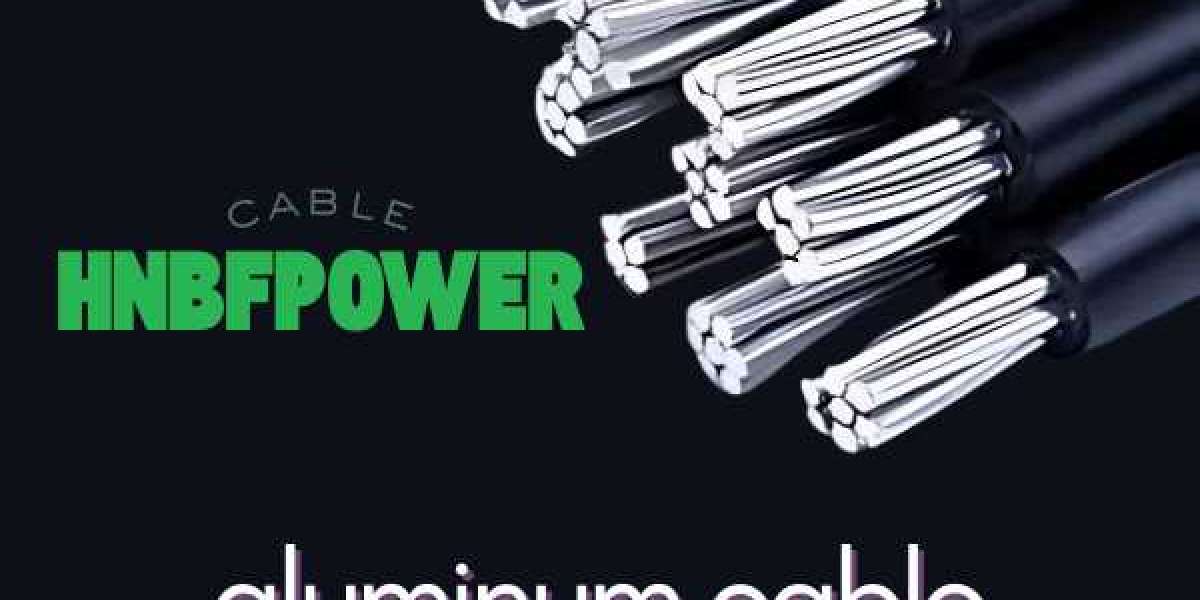Aluminum cables are widely used in power transmission and electrical distribution because of their lightweight nature, high conductivity, and cost-effectiveness. At HNBFpower, we specialize in producing durable and efficient aluminum cables that meet modern electrical standards. This guide explains where aluminum cables are used, their key specifications, advantages, and how to choose the right type for your project.
Where Aluminum Cables Are Used
Aluminum cables are a vital part of many electrical systems. Their versatility and excellent electrical performance make them suitable for several industries and applications:
Power Transmission Lines – Aluminum cables are commonly used for overhead power lines and grid connections due to their strength and light weight.
Industrial Installations – They are ideal for large factories, refineries, and manufacturing units that require long cable runs.
Residential and Commercial Wiring – In buildings, aluminum cables are often used for main feeders and service entry wiring.
Renewable Energy Systems – Solar and wind farms use aluminum cables for efficient current transmission from generation points to substations.
Underground and Submarine Cables – Aluminum cables are also used in underground systems where corrosion-resistant properties are important.
Specifications of Aluminum Cables
At HNBFpower, aluminum cables are manufactured according to international standards and specific industry needs. Key specifications include:
Conductor Material: High-purity aluminum
Conductor Type: Solid or stranded (for flexibility and strength)
Voltage Rating: Available from low to extra-high voltage options
Insulation Material: XLPE, PVC, or EPR, depending on application
Temperature Rating: Typically -20°C to +90°C
Standards Compliance: IEC, ASTM, BS, or customized specifications
These technical details ensure reliable performance under various operating conditions.
Advantages of Aluminum Cables
Aluminum cables offer several benefits compared to traditional copper cables. Some of the main advantages include:
Lightweight Construction: Aluminum is about one-third the weight of copper, making installation easier and more cost-efficient.
Cost Efficiency: It is more affordable than copper, providing significant savings on large-scale electrical projects.
Good Conductivity: Despite being less conductive than copper, aluminum’s lower density allows for thicker cables that maintain excellent conductivity.
Corrosion Resistance: When properly treated, aluminum forms a protective oxide layer that prevents rust and corrosion.
Flexibility and Ease of Handling: Aluminum cables are easier to bend, connect, and transport, making them suitable for multiple installation types.
High Strength-to-Weight Ratio: Ideal for overhead power lines and long-distance transmission where strength and low weight are required.
Aluminum Cable vs. Copper Cable
| Feature | Aluminum Cable | Copper Cable |
|---|---|---|
| Weight | Lightweight | Heavier |
| Cost | Lower cost | More expensive |
| Conductivity | Slightly lower | Higher |
| Corrosion Resistance | Naturally resistant | Requires coating |
| Ease of Installation | Easier to handle | More rigid |
While copper cables are still preferred in certain high-current applications, aluminum cables are now a popular alternative because of their economic and mechanical advantages, especially in large-scale installations.
How to Buy the Right Aluminum Cable
When purchasing aluminum cables from HNBFpower, consider the following factors to ensure optimal performance:
Determine Application Requirements – Identify whether it’s for residential, industrial, or transmission use.
Check Voltage Ratings – Match the voltage level of your system with the correct cable type.
Review Environmental Conditions – Choose suitable insulation for temperature, moisture, and installation type.
Confirm Compliance Standards – Ensure the cable meets your local and international quality standards.
Consult with Experts – Our HNBFpower technical team can help you select the best aluminum cable for your project specifications.
Conclusion
Aluminum cables are a smart choice for modern electrical systems balancing performance, cost, and durability. HNBFpower provides a wide range of high-quality aluminum cables designed to deliver efficient energy transfer for both industrial and residential applications. Whether you need overhead transmission lines or underground power cables, HNBFpower ensures reliable solutions that meet your project’s technical and safety needs.












